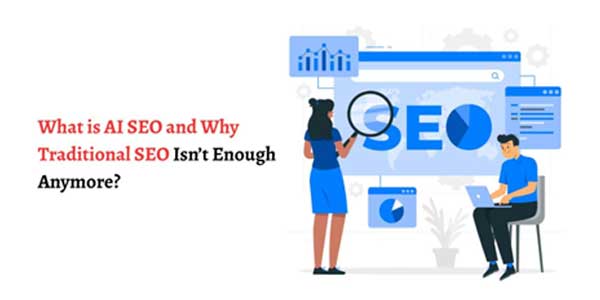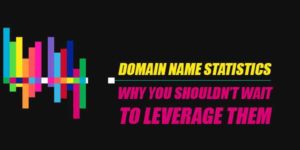
In 2019 or before, you could almost guarantee success with a simple recipe: great keyword research, solid meta descriptions, and a relentless backlink strategy. I saw countless clients spend months perfecting their content, and it paid off—they owned the first page of Google.
But let’s be real. That world is gone. Today, those carefully crafted articles aren’t on page one anymore. They’re getting buried by AI-generated summaries and instant answers that appear before anyone even clicks. What worked for many marketers back then is now just collecting digital dust on page three.
This isn’t an isolated incident. It’s a wake-up call for every marketer out there. The search landscape is going through its most massive change. This calls for a new age strategy: AI SEO that leverages technology to ensure modern-day optimisation.
Clinging to the traditional SEO strategies is like trying to use a flip phone in a world of smartphones. It’s time to adapt or get left behind. Traditional SEO alone won’t help you stay competitive in today’s rapidly changing search landscape.
Table of Contents
The Shift In Traditional SEO: Why Old Tactics Are Failing:
Remember when stuffing keywords like “best coffee maker” into every sentence guaranteed a top spot on Google? Those days are gone. AI algorithms, like Google’s RankBrain, now prioritise user intent over exact-match keywords. They’re smart enough to understand that someone searching “great coffee at home” wants the same thing as “best coffee maker.” Keyword density tools? Obsolete overnight.
They can’t keep up with AI’s knack for decoding context, meaning your 2% keyword ratio obsession is just wasted effort. Focus on solving real problems for readers, not gaming the system.
Technical SEO isn’t the golden ticket either. Meta tags, schema markup, and fast load times are table stakes now—every site’s doing it. They’re like showing up to a race with shoes on; you’re not winning just because you’re not barefoot. Technical optimisation alone won’t cut it when AI demands relevance and engagement.
The real revolution is quality over quantity. Churning out 50 thin blog posts stuffed with keywords? That’s a losing game. AI SEO rewards deep, valuable content that keeps users hooked. One well-crafted, story-driven post answering real questions trumps a dozen generic ones. It’s time to ditch the old playbook and embrace AI-driven strategies that put users first.
Understanding AI SEO: Meaning And Importance
AI SEO is the future of search, where user-focused strategies meet machine learning. It’s a matter of creating content that is pleasing both to humans and machines, emphasising relevance over old tricks. Large Language Models (LLMs) power AI SEO through context learning, not just keywords.
AI search engines like Google’s use context to decode user intent. They don’t just match keywords; they analyse the meaning behind queries. Entity recognition helps them identify topics and assess your site’s authority on them. Want to rank for “healthy recipes”? AI checks if your content consistently delivers value, not just keyword mentions.
Voice assistants and conversational queries are taking over. People ask Siri or Alexa full questions like “What’s a quick vegan dinner?”—not just “vegan dinner.” AI SEO optimises for these natural phrases and zero-click searches, where featured snippets steal the show. It’s about being the answer, not just a link.

The AI Advantage: What Search Engines Can Do Now
Semantic Understanding and Context:
Search engines aren’t just keyword matchmakers anymore—AI lets them read between the lines. With tools like Google’s BERT, they understand the context of your query like a friend would. Type “best running shoes for trails,” and AI knows you’re not after sneakers for the gym. It digs into the nuance, like when someone searches “apple” and gets tech results instead of fruit because their search history screams “tech nerd.” This semantic superpower means your content needs to answer real questions, not just chase keywords.
Expertise And Authority Detection:
AI doesn’t mess around when spotting experts. It scans your site for E-A-T (Expertise, Authoritativeness, Trustworthiness), checking if you’re the real deal. Got a blog on fitness? AI looks for consistent, in-depth content, credible author bios, and backlinks from trusted sites. For example, a nutritionist’s blog with detailed guides and citations outranks a generic site stuffed with “weight loss tips.” AI’s E-A-T evolution rewards creators who prove their expertise, so focus on building authority, not gaming the system.
Personalisation At Scale:
AI tailors search results like a personal shopper. It uses your past clicks, location, and even the time of day to serve up relevant content. Search “coffee shops” at 8 a.m. in Seattle, and you’ll see local cafes with high ratings, not a random list. AI content marketing thrives here, crafting content that adapts to user behaviour and preferences. Dynamic results mean your site must deliver value across contexts—whether it’s a local guide or a time-sensitive deal. Stay relevant, and AI will put you front and centre.
Mastering AI SEO: Your Strategic Playbook:
AI SEO is your ticket to standing out. Forget chasing single keywords—build topic clusters to own your niche. Create content ecosystems that cover every angle, mapping user journeys from curiosity to conversion with in-depth guides and quick answers.
Write for humans and AI in SEO, using natural language that flows like a conversation but structures data clearly for LLM SEO to parse. Think clear headings, scannable lists, and rich context.
To build trust, craft expert-level content that screams authority—detailed, credible, and backed by trusted links. With AI SEO, topical dominance and genuine value win. Start building your empire now.
Conclusion: AI SEO The New Frontier Traditional SEO Can’t Touch
AI SEO is flipping the script on search. Forget keyword stuffing—AI SEO, driven by LLMs, understands what users are looking for, values expertise, and customises like your favourite barista. It’s a shift from static, old-fashioned strategies to fluid, intent-based approaches. Want to get ahead? Start auditing content now.
Check if it answers real questions, showcases E-A-T, and feels relevant across contexts. Update thin pages, beef up author bios, and earn backlinks from trusted sites. AI SEO rewards value, so make every word count.
The future of search optimization isn’t arriving—it’s arrived. Embrace LLM SEO by producing content that’s genuine, insightful, and user-centric. Don’t pursue rankings; build credibility and resolve issues. Ready to win? Jump into AI SEO now, adjust your strategy, and catch the wave of wiser search.

 About the Author:
About the Author:












Be the first to write a comment.